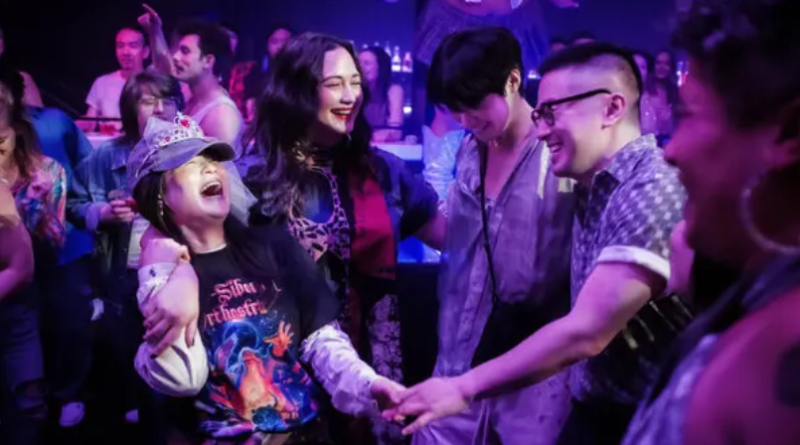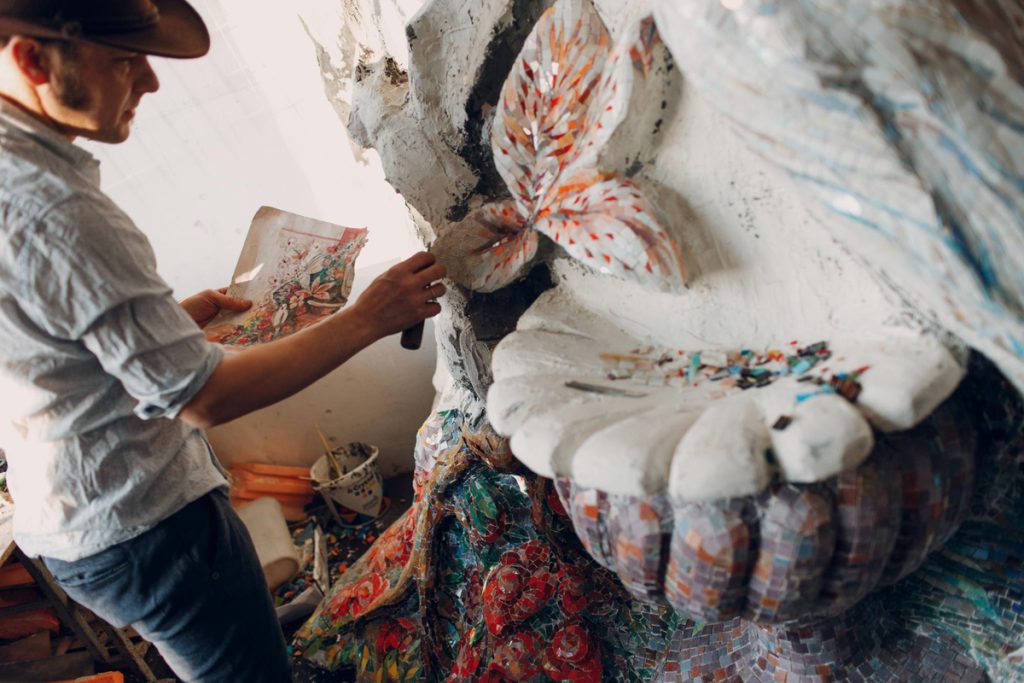The Wedding Banquet, a celebrated 1993 romantic comedy directed by Ang Lee, marked a pivotal moment in LGBTQ+ cinema. This delightfully complex film cleverly navigates the nuances of Asian American themes and the challenges of love, family, and societal expectations. In Andrew Ahn’s 2025 movie remake, an entirely new narrative unfolds, showcasing the evolving landscape of relationships and identity within the queer community. With a vibrant Seattle backdrop, Ahn captures the essence of contemporary LGBTQ+ life, reminding viewers of the joys and struggles that resonate across cultures and generations. This dynamic retelling promises to engage audiences with its humor and heartfelt exploration of love, redefining what it means to celebrate commitment in a diverse world.
Exploring the intricacies of matrimony and familial obligations, “The Wedding Banquet” serves as a keen reflection of modern love in the context of Asian American experiences. The narrative ventures deep into the complexity of relationships as it chronicles the lives of four dynamic characters navigating the intersections of culture, identity, and societal expectations. Andrew Ahn’s compelling retake on this classic tale underscores the progress of LGBTQ+ acceptance while also highlighting the persistent dilemmas faced by individuals caught between tradition and desire. This fresh interpretation invites audiences to reflect on the nature of belonging and the sacrifices made for love, combining elements of romance and comedy in a way that resonates authentically with contemporary viewers.
Exploring Andrew Ahn’s Vision for The Wedding Banquet
Andrew Ahn’s latest film, a remake of Ang Lee’s classic “The Wedding Banquet,” promises to immerse audiences in a new yet familiar narrative landscape. Ahn, recognized for his keen understanding of LGBTQ+ themes, refreshes the story with modern sensibilities that reflect today’s nuances in identity and relationship dynamics. This adaptation not only preserves the heart of the original comedy but also amplifies it with fresh perspectives. By relocating the narrative to contemporary Seattle, Ahn skillfully highlights the evolving landscape of acceptance within the LGBTQ+ community, setting the stage for both hilarity and heartfelt moments.
In reimagining the story, Ahn collaborates with James Schamus, ensuring that the essence of the original remains intact while also addressing the complexities of modern relationships. The film serves as a commentary on how much has changed since 1993 when Ang Lee introduced us to the witty and poignant struggles of societal expectations. Through vibrant characters and authentic dialogues, Ahn’s storytelling invites viewers to explore the interplay of love, culture, and personal freedom in ways that resonate deeply with today’s audience.
LGBTQ+ Themes in The Wedding Banquet
At its core, “The Wedding Banquet” serves as a reflection of the LGBTQ+ experience, showcasing the journey from concealment to acceptance. Ahn’s version deftly tackles the dilemmas faced by queer individuals in a society that continues to grapple with acceptance and identity. Characters like Angela and her partner Lee, while navigating personal challenges, illustrate the resilience and complexity of modern love. Their relationship stands as a vital testament to how LGBTQ+ people can now live openly, albeit not without facing the echoes of past restrictions.
The film’s portrayal of Angela’s strained relationship with her mother, who actively engages in the LGBTQ+ community, poignantly echoes the struggles many queer individuals face in seeking both acceptance and understanding from their families. Ahn’s narrative strategy allows these characters’ vulnerabilities to surface, effectively engaging the audience in a dialogue about cultural pressures and personal truths. The depiction of these themes through humor and heartfelt storytelling not only honors the legacy of Ang Lee but enriches it for a new generation.
Cultural Commentary in The Wedding Banquet
Cultural expectations lie at the heart of both versions of “The Wedding Banquet,” shining a light on the unique pressures faced by LGBTQ+ Asian Americans. In Ahn’s retelling, the complexity of family dynamics and cultural obligations is explored against a backdrop of queer love and identity. The protagonist’s journey reflects a collective experience where love often intersects with cultural responsibilities, revealing deep-seated fears and aspirations. The humorous contradictions between traditional values and contemporary queer relationships create a fertile ground for Ahn to explore these themes with both respect and irreverence.
Moreover, Ahn’s adaptation intelligently showcases the clash of old-world expectations and the burgeoning acceptance of diverse sexual identities. The intergenerational tension seen between characters not only serves as comic relief but also opens up an essential dialogue about the evolution of Asian American identities. As the characters navigate the complexities of love and family, the audience witnesses the emotional stakes involved in their lives, fostering a deeper understanding of cultural identity in the LGBTQ+ landscape.
Character Evolution in Ahn’s The Wedding Banquet
In this latest rendition, character development is a focal point that Ahn masterfully cultivates. Characters like Angela evolve from simply being defined by their sexuality to becoming fully realized individuals with dreams, aspirations, and complex familial relationships. The dynamics between Angela, her partner Lee, and their friends Chris and Min illustrate a tapestry of love that defies traditional norms, thereby enriching the narrative. Ahn skillfully uses these characters to reflect on the broader LGBTQ+ experiences while addressing specific cultural contexts.
The characters’ motivations are interwoven with their backgrounds, genuinely portraying the intersection of ethnicity and sexual orientation. Ahn’s nuanced writing gives each character a voice that resonates with audiences, making their struggles and joys relatable. The exploration of commitment, friendship, and family illustrates the multifaceted nature of love and identity in today’s society, effectively demonstrating how these themes remain relevant in the current age.
The Wedding Banquet: A New Perspective on Marriage
Marriage, in both its traditional and modern formats, emerges as a central theme in Ahn’s adaptation of “The Wedding Banquet.” The film uses the concept of marriage not only as a social contract but also as a platform to display the ongoing struggle for LGBTQ+ recognition. The characters’ unconventional arrangements challenge societal norms, transforming the traditional view of marriage into a multifaceted discussion about partnership, acceptance, and personal agency. This fresh perspective honors the original film while posing new questions about the institution of marriage in the context of LGBTQ+ rights.
In Ahn’s retelling, the marriage between Min and Angela becomes a symbol of defiance, showcasing how love can flourish amidst societal expectations. Their arrangement serves as both a practical solution and a commentary on the fluidity of relationships in contemporary society. By addressing the complexities surrounding marriage and family, Ahn provides an engaging narrative that not only reflects the realities of modern relationships but also heralds the progress of LGBTQ+ rights, offering hope and inspiration to those in similar situations.
Ang Lee’s Legacy and Ahn’s Remake
Ang Lee’s original “The Wedding Banquet” remains a landmark film that shifted perceptions of LGBTQ+ narratives in cinema. The 1993 film dismantled stereotypes while showcasing the humor and heart that can thrive under scrutiny. Andrew Ahn’s remake recognizes this significant legacy and builds upon it, reinforcing the idea that stories of love and acceptance continue to evolve. By respecting the source material while infusing it with contemporary relevance, Ahn honors Lee’s pioneering spirit and contributes a fresh narrative to the ongoing conversation about LGBTQ+ representation in film.
The collaboration between Ahn and Schamus reflects a commitment to preserving the emotional depth and cultural critique that characterized the original. This dialogue between past and present enriches the cinematic landscape, illustrating how stories of love are timeless and universal. Ahn’s thoughtful approach ensures that the characters’ struggles resonate with today’s audiences, making the new “The Wedding Banquet” not just a remake, but an essential part of LGBTQ+ cinematic history.
Community and Belonging in The Wedding Banquet
The theme of community resonates throughout Ahn’s “The Wedding Banquet,” reflecting the importance of support networks within the LGBTQ+ world. The connections between characters like Angela, Lee, Chris, and Min symbolize a broader, more accepting queer community that has blossomed over the past few decades. Ahn captures this shift beautifully, illustrating that love and friendship can flourish in spaces where societal acceptance and cultural heritage intersect. Through joyful gatherings and shared experiences, the film highlights how these bonds can provide support, resilience, and a sense of belonging.
Moreover, the film challenges the notion that family and community must conform to traditional structures. Ahn expertly utilizes the dynamics between the friends to emphasize the fluidity of relationships in modern society. This sense of belonging extends beyond biological ties, reinforcing the idea that family can be chosen. Such portrayals encourage viewers to embrace diversity and celebrate love in its myriad forms, reflecting a society that increasingly values inclusivity and acceptance.
The Balance of Comedy and Drama in Ahn’s The Wedding Banquet
Ahn’s “The Wedding Banquet” cleverly balances comedic moments with poignant drama, a feat reminiscent of Ang Lee’s original. While the film explores heavy themes such as repression and societal expectations, it concurrently embraces humor as a means of coping. The interactions among characters often spark laughter, creating a dynamic that allows the audience to engage with serious topics without overwhelming heaviness. This balance enriches the viewing experience, reminding us that joy and adversity can coexist.
The film’s comedic elements also serve to highlight the absurdities of cultural expectations, fully embracing the farcical aspects of the wedding while still honoring the characters’ emotional journeys. Ahn’s sharp writing and skilled direction ensure that the moments of humor don’t overshadow the deeper themes. Instead, these elements work in tandem, offering insights into the complexities of queer love and cultural identity while delivering authentic laughter along the way.
The Evolution of LGBTQ+ Representation in Cinema
Ahn’s remake of “The Wedding Banquet” is a significant chapter in the evolution of LGBTQ+ representation in cinema, marking a shift towards more nuanced portrayals of queer life. The 2025 adaptation reflects how far the industry has come since 1993, where LGBTQ+ narratives were often sidelined or depicted through a narrow lens. Ahn’s film captures a vibrant and complex portrayal of modern queer experiences, echoing broader societal changes in attitudes towards acceptance and diversity.
By casting a diverse ensemble of characters, Ahn challenges the conventions of storytelling in Hollywood. The film yields a deeper understanding of intersectionality in the LGBTQ+ community, addressing the unique struggles faced by Asian Americans while simultaneously celebrating their identities. This evolution in representation not only pays homage to the pioneering efforts of Ang Lee but also sets a promising precedent for future filmmakers to explore the rich tapestry of queer narratives.
Frequently Asked Questions
What are the central themes of Andrew Ahn’s remake of The Wedding Banquet?
Andrew Ahn’s remake of The Wedding Banquet explores vital themes such as LGBTQ+ identity, family obligations, and the complexities of Asian American experiences. It highlights the contrast between personal truth and societal expectations, reflecting on the journey of its characters within a culturally rich narrative.
How does Andrew Ahn’s version of The Wedding Banquet differ from Ang Lee’s original?
Andrew Ahn’s version of The Wedding Banquet adapts the foundational premise from Ang Lee’s original by situating the story in contemporary Seattle and introducing new character dynamics that reflect current LGBTQ+ experiences. While both films explore themes of love and familial pressure, Ahn emphasizes the evolution of these themes in a more accepting society.
Who are the main characters in Andrew Ahn’s The Wedding Banquet?
The main characters in Andrew Ahn’s The Wedding Banquet include Angela, an introverted research scientist; Lee, her supportive partner; Min, a gay man on a visa; and Chris, Min’s boyfriend. Their intertwining stories expose the complexities of love, identity, and familial expectations within an Asian American context.
What impact did Ang Lee’s The Wedding Banquet have on LGBTQ+ cinema?
Ang Lee’s The Wedding Banquet had a profound impact on LGBTQ+ cinema by bringing Asian American narratives to the forefront and addressing themes of sexuality and familial pressure. This groundbreaking film paved the way for more inclusive storytelling and representation within the romantic comedy genre.
What cultural elements are featured in the wedding scenes of The Wedding Banquet?
Both Ang Lee’s and Andrew Ahn’s versions of The Wedding Banquet showcase rich cultural elements, including traditional wedding rituals, elaborate Chinese or Korean ceremonies, and the significance of food and family. These cultural details enhance the storytelling and highlight the intersection of personal and communal identities.
How does humor play a role in The Wedding Banquet?
Humor is a crucial aspect of The Wedding Banquet, used to address serious themes like repression and identity crises with levity. Both Ang Lee’s original and Andrew Ahn’s remake incorporate comedic elements to balance the tension between societal expectations and personal desires, making the narrative both engaging and thought-provoking.
What are the audience’s expectations for the 2025 movie remake of The Wedding Banquet?
With Andrew Ahn at the helm, audiences anticipate a fresh interpretation of The Wedding Banquet that resonates with contemporary LGBTQ+ experiences while honoring the original’s cultural significance. Expectations include a blend of humor, heartfelt storytelling, and a nuanced exploration of Asian American themes in a modern context.
How does The Wedding Banquet reflect Asian American themes?
The Wedding Banquet reflects Asian American themes by delving into the cultural expectations surrounding family, marriage, and identity. Both Ang Lee’s original and Ahn’s remake highlight the struggles faced by Asian Americans in reconciling traditional values with personal truth, creating relatable narratives for many viewers.
| Key Points | Details |
|---|---|
| Remake of a Classic | Andrew Ahn’s version revisits Ang Lee’s 1993 film, ‘The Wedding Banquet,’ updating it for contemporary audiences. |
| Themes of Repression | The film explores social repression within Asian communities and the LGBTQ+ experience, emphasizing the challenges of coming out and familial expectations. |
| Plot Overview | The story revolves around two gay couples and a marriage of convenience, parodying traditional societal roles while addressing serious themes. |
| Cultural Insights | The wedding reception is depicted with anthropological curiosity, showcasing cultural rituals through a comedic lens. |
| Character Depth | New characters in Ahn’s film reflect modern family dynamics, with unresolved tensions creating a rich narrative. |
| Comparative Analysis | While Lee’s film balanced humor and drama seamlessly, Ahn’s adaptation struggles with emotional depth, hinting at generational shifts in audience expectations. |
| Cameo Appearance | Ang Lee makes a cameo, linking the new film to the original and his broader body of work. |
Summary
The Wedding Banquet is a contemporary remake that captures the essence of Ang Lee’s 1993 classic while reflecting today’s societal changes regarding LGBTQ+ acceptance. With complex character dynamics and cultural rituals at its core, it juxtaposes humor with poignant themes of repression and familial obligations. Andrew Ahn adds depth to this fresh narrative, encouraging viewers to reflect on the evolving nature of love, identity, and acceptance in modern contexts.



